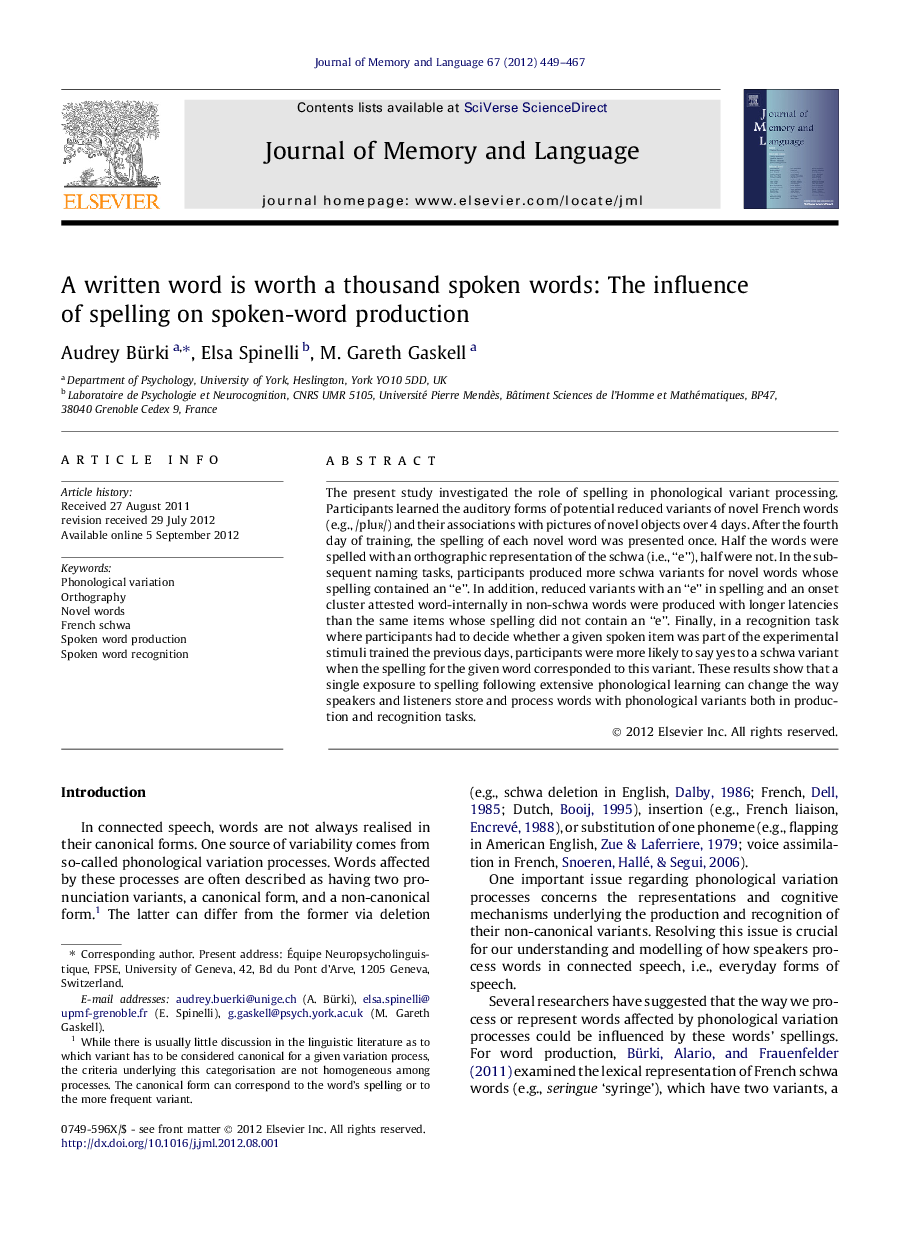| Article ID | Journal | Published Year | Pages | File Type |
|---|---|---|---|---|
| 931976 | Journal of Memory and Language | 2012 | 19 Pages |
The present study investigated the role of spelling in phonological variant processing. Participants learned the auditory forms of potential reduced variants of novel French words (e.g., /plur/) and their associations with pictures of novel objects over 4 days. After the fourth day of training, the spelling of each novel word was presented once. Half the words were spelled with an orthographic representation of the schwa (i.e., “e”), half were not. In the subsequent naming tasks, participants produced more schwa variants for novel words whose spelling contained an “e”. In addition, reduced variants with an “e” in spelling and an onset cluster attested word-internally in non-schwa words were produced with longer latencies than the same items whose spelling did not contain an “e”. Finally, in a recognition task where participants had to decide whether a given spoken item was part of the experimental stimuli trained the previous days, participants were more likely to say yes to a schwa variant when the spelling for the given word corresponded to this variant. These results show that a single exposure to spelling following extensive phonological learning can change the way speakers and listeners store and process words with phonological variants both in production and recognition tasks.
► Role of spelling in phonological variant processing examined with novel words. ► Focus on French schwa words. ► Single exposure to spelling found to affect naming and recognition performance. ► Spelling changes how speakers and listeners store and process phonological variants.
